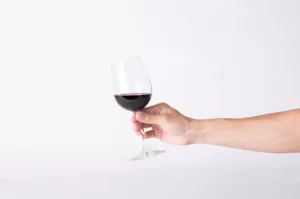
Weaning off alcohol can not only dramatically improve the quality of your life, but it can also actually save it. If you are looking to reduce your alcohol consumption safely, contact Legacy Healing. Quitting drinking, “cold turkey,” means you suddenly stop consuming alcohol. Tapering off (or tapering down) alcohol means you gradually reduce the amount of alcohol that you consume over time. Read on to learn how to wean off alcohol, whether alcohol withdrawal can kill you, and other common questions about quitting drinking. However, even the best-designed tapers can put you at risk for alcohol withdrawal syndrome.
For Immediate Treatment Help Call 800-526-5053
- It can also be a good idea for people who don’t want to, or can’t, attend any type of full detoxification program.
- Weaning off alcohol is considerably safer and more effective than going cold turkey.
- Decode the common signs of cocaine use, understand its health impacts, and explore treatment options.
- If you want to cut back your alcohol consumption or stop drinking alcohol altogether, tapering may help.
While tapering can mitigate the severity of alcohol withdrawal symptoms, people can still expect to experience them. By following a clearly delineated roadmap with an end goal in sight, alcohol withdrawal, while no walk in the park, can seem far more achievable. Asking for help is an important step in overcoming alcohol addiction. Reaching out to friends, family, support groups, or healthcare professionals provides the guidance and encouragement needed to maintain sobriety. Seeking help also provides individuals with access to tailored resources and coping strategies to navigate triggers and cravings.

Importance of a Support System
- If you or a loved one has decided to taper off alcohol, it is generally a good idea to plan this process well in advance.
- Positive health effects include improved emotional regulation, reduced stress levels, and increased motivation to maintain sobriety.
- This can trigger alcohol withdrawal symptoms, which can be dangerous in some cases.
Reducing the amount of the chosen substance consumed daily is known as a direct how to taper off alcohol taper, but it may not be effective for everyone. It is only advisable to direct taper if the preferred drink is beer with a low alcohol percentage. If you and your doctor decide that a taper is proper for you, it is crucial to remember there isn’t a one-size-fits-all strategy.
The 3 C’s of Addiction Recovery: 3 Goals for Family Members
When coming off drugs or alcohol tapering is the best way to prevent severe withdrawal symptoms. Tapering is the act of gradually reducing alcohol use until completely abstinent. By creating a schedule to monitor your alcohol use you can see just how much of the substance you are drinking. If you drink heavily on a regular basis, it can be dangerous to stop alcohol cold turkey. For this reason, you should not suddenly quit drinking without talking to your doctor. The consequences of quitting alcohol cold turkey can be serious and lead to alcohol withdrawal syndrome, which can be fatal in severe cases.

Individuals who suffer from alcohol use disorder may recognize the devastating consequences of continued alcohol consumption, but they are simply unable to manage their own drinking. Tapering, or weaning off, is an approach to detoxing from alcohol or other drugs that involves gradually reducing one’s consumption over a given length of time. Individuals can taper off alcohol alone, though it is generally safer and more effective to do so under the supervision of addiction professionals. For people with severe alcohol dependence, clinical evidence shows that tapering is a safer https://ecosoberhouse.com/ alternative to the “cold turkey” method, which involves quitting alcohol entirely all at once. However, tapering is not necessarily the best strategy for everyone.
Alcoholism: Top 10 Health Questions Answered
Treatment is highly individualized based drug addiction on symptom presentation and the length of someone’s alcohol use. Here are a few ways that people can care for withdrawal symptoms. Some people choose to taper more quickly by cutting the amounts in half–for example 20, 10 5, 2, 0.
- Tapering off of alcohol involves making gradual incremental changes.
- Professional care ensures safety, symptom management, and access to resources for ongoing recovery.
- One of the reasons that medical professionals tend to avoid tapers is that they can be difficult to follow and may be more likely to be unsuccessful than faster options.
- This record not only fosters self-reflection but also helps reveal insights that may lead to change.
- For some drinkers, cutting down on the amount of alcohol they drink simply does not work.
My Story About A Christmas Party Relapse

A variety of factors can determine a person’s withdrawal symptoms and the proper tapering procedure. These include their level of dependence, level of tolerance, the individual biology of the drinker, and the circumstances under which they normally drink. Together, these factors can make people’s addictions more emotionally and physically debilitating. Progressively tapering off of alcohol rather than stopping abruptly can mitigate both the discomfort and the dangers of quitting this powerful substance.

To successfully taper your alcohol use, finding what works best for you is important. Alcohol proof is the amount of alcohol found in distilled spirits or liquor. Smaller drinks with a higher percentage of alcohol are stronger than the same size drink containing a lower-proof liquor.
How To Taper Off Alcohol
People who want to reduce their alcohol consumption often do not realize how much of their social and daily routines alcohol has become. Tapering alcohol may be uncomfortable, and there may be subconscious triggers that stimulate the desire to drink alcohol. Stress is a common trigger that makes it hard to modify your alcohol intake. Finding a different, more healthy way to unload stress may go a long way in helping someone succeed in cutting back on their alcohol use. Typically, quitting cold turkey from a 12-beer-a-day habit is going to be more stressful than tapering off slowly. In addition, home detox may not be effective, appropriate, or safe.